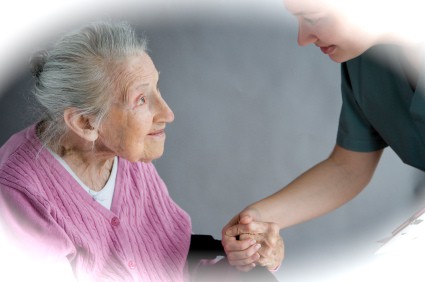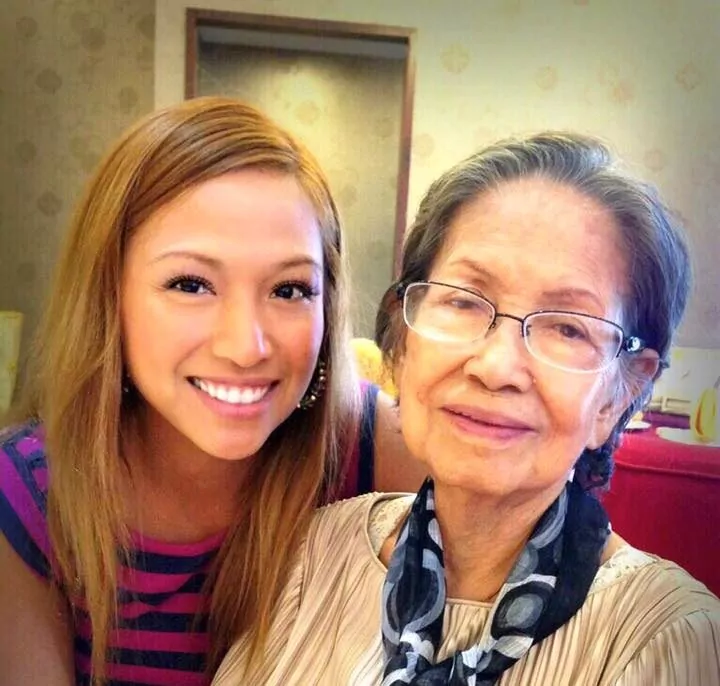
Updated: May 8, 2015 by Catharine D. Allado
According to the U.S. Department of Labor, there are more than 22 million caregivers nationwide, 13 million being from the baby boomer generation alone. At least 60 percent of those needing care are 65 or older and often times, their spouse is the sole caregiver.
A caregiver’s duties range from physical assistance to emotional support and everything in between. Those being cared for often need help 24 hours a day, with everything from eating and taking medicine to showering and going to the bathroom. This constant vigil by the caregiver can be exhausting. Many caregivers supply so much attention and energy toward caring for their loved one that they often forget to care for themselves; making them more susceptible to injury and illness.
Factors like poor diet, loss of sleep, stress and lack of exercise can eventually make caregivers less physically, mentally and emotionally able to provide adequate care to their loved one. AARP.com, states that according to caregiving research, caregivers have significantly higher levels of depression as compared to non-caregivers, which increases the risk of poor physical health.
Caregivers have a higher risk of chronic illness, such as heart disease and anxiety disorders, as well as persistent stress and a higher incidence of suicide. Caregivers are also highly likely to experience emotional strain, which can lead to negative thoughts and anger toward themselves and their loved one, guilt, social withdrawal, inability to concentrate and substance abuse.
What can a caregiver do to make caregiving more manageable?
Have a thorough check-up
Give yourself a break
Reassess methods of care
Get emotional and mental support
1. Consider talking to your doctor and having a thorough checkup.
You are likely under a great deal of stress and may have unknowingly neglected your own health for a while. You may have some health issues that you never even knew existed. A routine checkup will help you stay on top of your health and prevent current conditions or health concerns from worsening. Try to keep regular doctor and dentist appointments for yourself just as you would for your loved one. Your ability to care for them largely depends on your own physical, mental and emotional well-being.
2. Give yourself a break.
While this is easier said than done, a short break from care can go a long way. Seek the help of a relative or a friend who can care for your loved one while you have some “Me time.” If you are financially able, perhaps hiring a professional caregiver to come at least once a week can provide you with enough time to tend to otherwise ignored tasks. Something as simple as running errands alone, reading a book or taking a nap can physically, mentally and emotionally prepare you to resume your caregiving duties.
Try calling your local Agency on Aging to find out about respite programs, caregiver care coordination and other caregiver programs. Take advantage of the help they provide.
3. Reassess your methods of care.
Improvements are made in the medical industry daily, with new devices, medications and interventions available for nearly every disease, disorder and ailment. Many of these medical advancements not only make life easier for the patient, but for the caregiver as well. For instance, one of the primary reasons for nursing home or assisted living placement of the baby boomer population is inability to provide incontinence care.
Many people with incontinence resort to adult diapers and pads because of their ease of use and availability. However, changing adult diapers or absorbent pads can take up a chunk of a caregiver’s day and is often not as simple as that task alone. Many adults who wear absorbent garments require additional ointments, creams or powders in order to maintain skin integrity.
Treatment of complications from diaper or catheter use just adds to a caregiver’s already busy schedule. Consider changing to a more modern, health and time-conscious incontinence management method, such as Liberty by BioDerm. Liberty is an external device for men designed to stay on for 24 hours or more without the risk of leaking or skin irritation. 24 hours without changing an incontinence management device can give a caregiver a tremendous break.
If you have a caregiving task that seems to eat away at your time and energy, talk to doctors, your peers and even search the Internet. There may be a medical advancement that will give you and your loved one a better quality of life and care.
4. Seek mental and emotional support.
Just as there are disease-specific support groups, there are also many caregiver support groups. Again, consult your doctor, peers and the Internet for local caregiver support groups and networks nationwide. You can also join our discussion forums to connect with fellow caregivers, pose questions, give advice and provide an outlet for venting about caregiver woes. Being able to discuss caregiving concerns with someone who has been in your shoes is one of the best ways to unload the mental and emotional burden many caregivers carry.
Overall, caregivers should make their health just as much of a priority as they do the health of their loved one. While caregiving can feel isolating, there are many resources available to caregivers that will make daily tasks more manageable. Keeping regular doctor appointments, giving yourself regular breaks, seeking medical interventions and joining a local support group are just a few of the ways caregivers can take care of themselves. Always remember, you are not alone.
About the Author: Amy Coelho is the Public Relations Coordinator with BioDerm, Inc., a durable medical manufacturer in Largo, Fla. For additional information on Liberty, an external continence device for men, please contact Amy at (800)373-7006 or by email at ACoelho@BioDerm.us. Visit BioDerm on the Web at www.BioDerm.us and on Myspace at www.myspace.com/bioderm
Copyright 2018 SeniorCareHomes.Com. All Rights Reserved.
Articles Related To Caregiving:
- How To Be A Healthy Caregiver
- Family Caregiving For Beginners
- Preventing Caregiving Burnout
- Long-Distance Caregiving
- What Is Respite Care?
Catharine “Kate” is a Certified Administrator for Residential Care Facilities for the Elderly (RCFE) and an Expert Senior Care Advisor. Kate’s grandmother battled Alzheimer’s Disease and Kate personally understands what millions of families are going through. Kate and her team are very passionate in empowering Seniors and their families by providing them with the Best Available Senior Care Options based on Senior’s care needs, preferred location and family’s budget.


